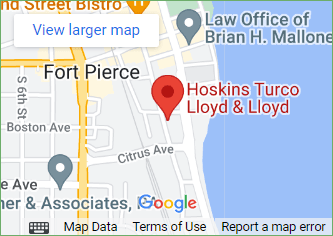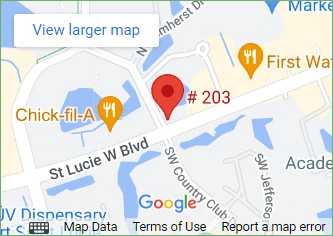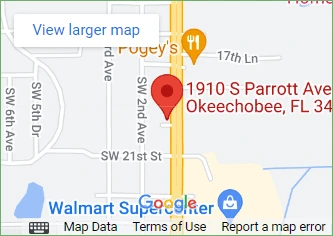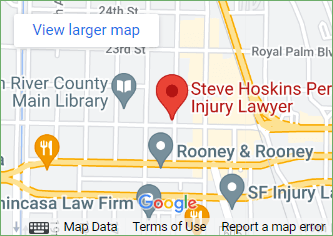Auto Accident Settlement
How much do you have to be in debt to file bankruptcy?
Bankruptcy can be a relief option for those who don’t have a place to turn after being overwhelmed by debt. For some, it is hard to even assess the level of debt they have and know whether bankruptcy is a viable option or not. There is no minimum amount of debt, and the maximum amount of debt you have can be flexible depending on the Chapter under which you are filing, but there are ways to determine general eligibility and if the bankruptcy process, in general, is the right decision for you.
In Florida, to move forward with a bankruptcy case you must either be a permanent resident or own property in the state and pass an income calculation called “the means test.” Each state has its own district of the Federal Bankruptcy Court system with unique guidelines; be sure to abide by your state’s general requirements.
If you have questions about the bankruptcy process or are ready to get started with your case, schedule a free case review with a Florida bankruptcy attorney.
Types Of Bankruptcy Cases
Before deciding to file a bankruptcy petition, you should have a general understanding of your options. The most common personal bankruptcy cases are Chapter 7 bankruptcy and Chapter 13 bankruptcy.
Chapter 7 Bankruptcy Imposes Earnings Limits
A Chapter 7 bankruptcy, or the “liquidation bankruptcy,” discharges all unsecured debt by collecting non-exempt assets to be sold by a court-appointed trustee to pay for a portion of your debt.
If you don’t have assets to sell, that’s alright too, as 96% of all Chapter 7 bankruptcies are filed as “no asset” cases. That means the debtor walked away without surrendering any possessions to pay back collectors, while the unsecured debts they owed got discharged. This type of bankruptcy case takes roughly two to four months to file and can be a way to get the stressful debt off your back quickly, provided you qualify.
While there are limits to how much income you earn in order to be eligible to file for Chapter 7 bankruptcy, there is no maximum amount of debt. Individuals must pass a means test before they are able to file for Chapter 7 bankruptcy, which sets a cap on monthly calculated earnings. If the petitioner makes over the capped amount and is unable to obtain an exception, they will be required to file for Chapter 13 bankruptcy instead.
Chapter 13 Bankruptcy Has a Cap on Allowable Debt, But No Minimum
Chapter 13 bankruptcies are known as “reorganization bankruptcy” because it allows the debtor to keep their property while creating a payment plan that usually lasts between three and five years.
There is no minimum amount of debt required in order to be eligible to file, but there is a cap on the amount of unsecured and secured debt a person may have when filing a Chapter 13 bankruptcy. The current debt limits are as follows, and are subject to change upon April 1, 2022:
- $419,275 for liquidated, noncontingent unsecured debts
- $1,257,850 for liquidated, noncontingent secured debts
What Debt Can Be Erased
Not all debt is erasable! Certain types of debt qualify for discharge and other debts are secured, meaning they have collateral backing and can not be forgiven under bankruptcy.
It is important to know what debt can be discharged in order to assess if bankruptcy is even the right option for you and your unique situation. Depending on what bankruptcy chapter you file under, you could have all unsecured debt forgiven, or be given the chance to pay back an agreed amount so that you may keep property that would otherwise be surrendered.
The most common types of dischargeable unsecured debts are:
- Credit card debt
- Personal loans
- Medical bills
Examples of secured debts that cannot be erased under a Chapter 7 or 13 bankruptcy, in most cases:
- Child support
- Tax liens
- Court penalties
- Personal injury debts
How Much Debt Should You Have To Proceed With A Bankruptcy Case?
There is no strict minimum when you’re filing for bankruptcy. The main stipulation is evaluating if the amount of debt you have is worth going through the bankruptcy process.
Generally, an attorney won’t take on a case if you have less than five figures in debt because a judge would likely dismiss the case after determining that proceeding is not in the debtor’s best interest. This unofficial standard is used to protect the petitioner from going through a case that would not typically result in a net benefit.
Filing for bankruptcy can come with some long-lasting effects that should weigh into your decision to move forward, as well. Aside from a negative mark on your credit history for up to 10 years, you are also legally required to report your bankruptcy, when asked, on relevant applications. It is also a public record, being documented on official state and federal reports, so the situation will not be private and can be attached to your name when searched.
Preparing For Your Bankruptcy Case
The bankruptcy journey is often long, and there are things that you could be doing to preserve your case, even before you file.
If you think you’ll be filing for bankruptcy soon, there are some strategic changes you should make to ensure that you’re on the right track.
- Don’t take on any new debt: If you open a new line of credit or take out a loan, the lender could claim that you intentionally borrowed without intending on paying the balance back. That is considered fraud and cannot be forgiven in bankruptcy.
- Don’t pay the creditors!: If you panic and think about paying one of your creditors an extra-large payment this month, don’t! This can be seen as a “preferential transfer,” which means the collector is arguing that one creditor has benefitted more than others.
- Don’t dip into retirement funds: retirement plans are generally exempt from liquidation in bankruptcy cases, so keep that money where it is and don’t use it to pay back any debt.
- Don’t make any unusual transfers: Transferring the title of cars or homes, even the transfer of business assets can be argued as a fraud when moved so close to the filing of a bankruptcy.
Explore Your Options With A Florida Bankruptcy Attorney!
A bankruptcy case is a serious decision. Of course, there are long-standing factors that each debtor should think about before moving forward. You may want to talk with an experienced lawyer to assess if you have enough debt for the outcome that you’re looking for. If you need a professional opinion, the team at Hoskins, Turco, Lloyd & Lloyd will be there for you. We offer a completely free, no-obligation consultation so that you can meet our team and trust that your bankruptcy case is in the right hands. We are excited to help you!
You can contact us online or reach out by phone. Call (866) 930-6435 to schedule your free case review today!
Verdicts and Settlements
$1.2 Million
$1.6 Million
Wrongful Death Settlement
$11.1 Million
Settlement for motorcycle accident
Locations
Ft. Pierce, FL 34950
Suite 203, Port St. Lucie, FL 34986
Okeechobee, FL 34974
Vero Beach, FL 32960
The hiring of a lawyer is an important decision that should not be based solely upon advertisements. Before you decide, ask us to send you free written information about our qualifications and experience.
We are a debt relief agency and attorneys. We help people file for Bankruptcy relief under the Bankruptcy Code. The hiring of a lawyer is an important decision that should not be based solely upon advertisements. Before you decide, ask us to send you free information about our qualifications and experience.
Hoskins, Turco, Lloyd & Lloyd © 2020 All Rights Reserved. Terms of Use and Privacy Policy
This site is protected by reCAPTCHA and the Google Privacy Policy and Terms of Service apply.





